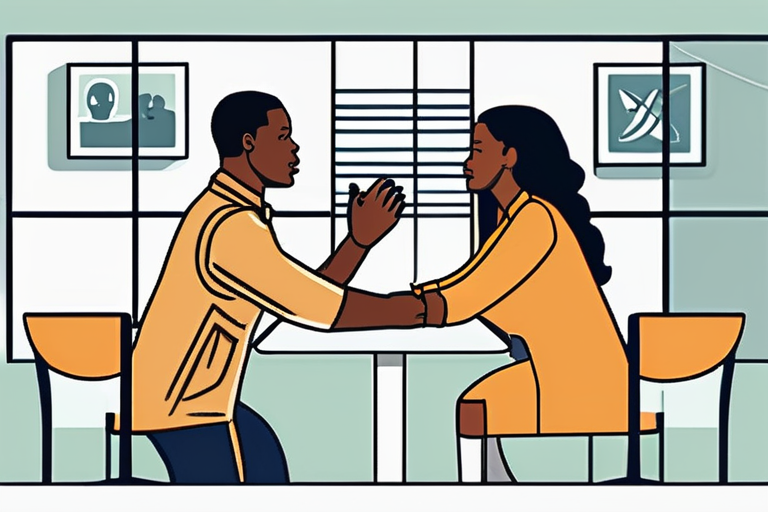Navigating Cultural Differences: 4 Crucial Conversations for Interracial Couples to Thrive


Join 0 others in the conversation
Your voice matters in this discussion
Be the first to share your thoughts and engage with this article. Your perspective matters!
Discover articles from our community

 Hoppi
Hoppi

 Hoppi
Hoppi

 Hoppi
Hoppi

 Hoppi
Hoppi

 Hoppi
Hoppi

 Hoppi
Hoppi

Expert Advice Reveals $5 Kitchen Gadget Could Unlock Real Benefits of Standing Desks A recent episode of the BBC Sounds …

Hoppi

Brazilians Celebrate Bolsonaro Conviction as Thousands Take to the Streets RIO DE JANEIRO, Brazil (AP) — Thousands of Brazilians poured …

Hoppi

Revolutionizing Software Development: Vibe Coding Gains Momentum with Expert Tips In a significant shift in the software development landscape, vibe …

Hoppi

"The Shadow of War: Zelenskyy's Warning to the Kremlin" As the sun set over the United Nations General Assembly in …

Hoppi

iOS 26 Arrives on Monday: Find Out if Your iPhone is Eligible for the Free Update Apple's highly anticipated iOS …

Hoppi

Hubble's Explosive Secret: A Rare White Dwarf's Financial Impact on the Astronomy Industry The discovery of a rare ultra-massive white …

Hoppi